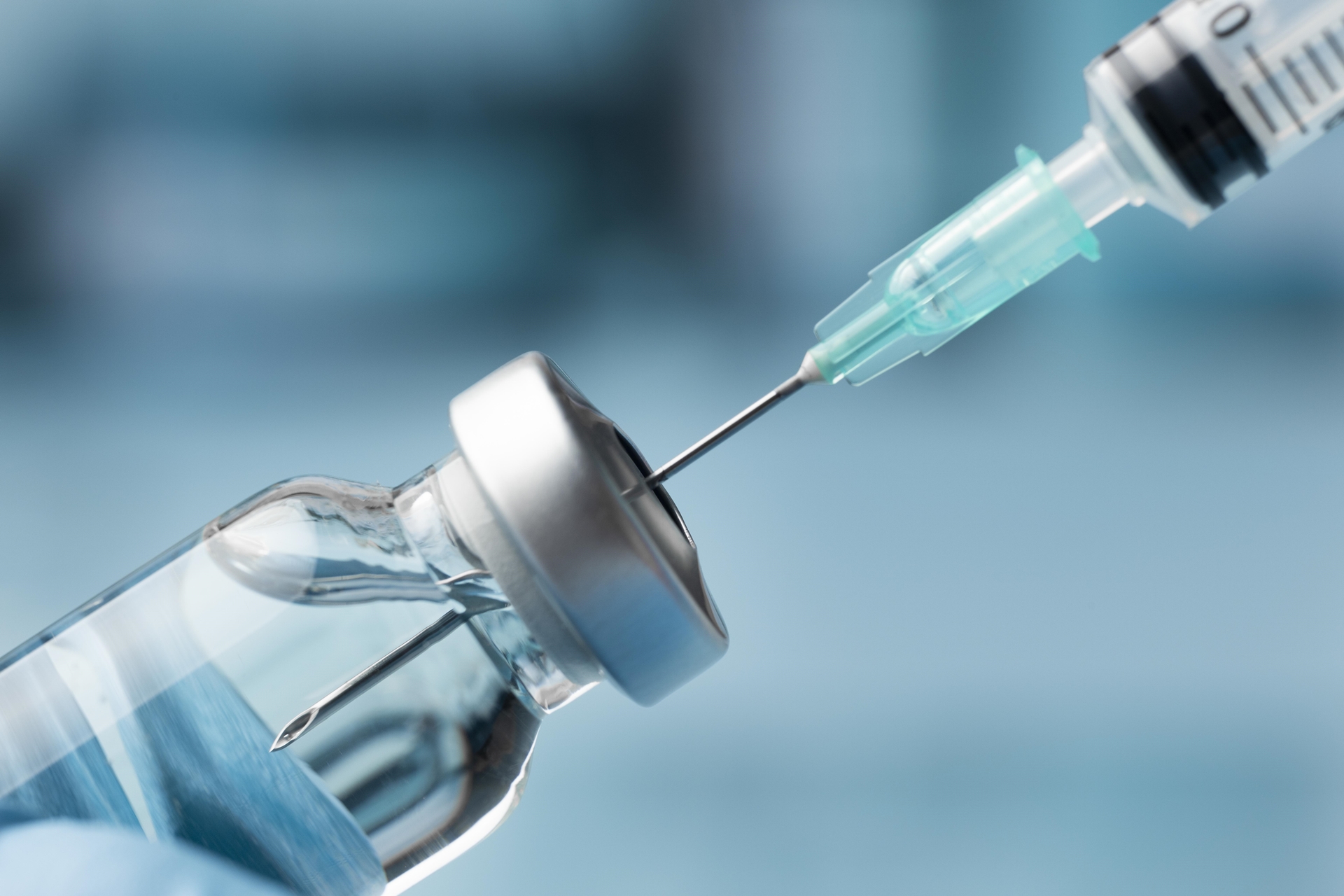Protection against both the COVID-19 infection and Chickenpox is extremely important, not just for your own health but for the health of those around you. For example, those who may not be eligible to receive vaccinations, such as those with weakened immune systems. However, it is important to ensure you are receiving each vaccination at the right time to ensure they each work correctly.
Varicella Vaccine
The varicella vaccine, commonly known as the chickenpox vaccine, plays a crucial role in preventing varicella-zoster virus (VZV) (herpes zoster) infection. This vaccine is a live attenuated vaccine, meaning it contains a weakened form of the virus that causes chickenpox. Live attenuated vaccines use viruses or bacteria that have been weakened so that they cannot cause the disease in a healthy person but can still stimulate an immune response.
Mechanism of Action
The varicella vaccine works by introducing the weakened virus into the body. This prompts the immune system to recognise the virus as foreign and mount a defence. The immune response involves the production of antibodies, which are proteins that target and neutralise the virus.
Additionally, memory cells are generated, providing long-term immunity. If the vaccinated person is later exposed to the actual virus, their immune system can quickly recognise and respond, preventing or significantly reducing the severity of the infection.
Effectiveness
The varicella vaccine has proven to be highly effective in preventing chickenpox. In addition to protecting individuals from the primary infection, it also reduces the severity of symptoms in those who may still contract the virus after vaccination. The vaccine has contributed to a substantial decline in the incidence of chickenpox and its complications, such as pneumonia or bacterial infections.
COVID-19 Vaccine
Multiple COVID-19 vaccines have been developed to combat the global pandemic caused by the SARS-CoV-2 virus. These vaccines employ different technologies, including mRNA and viral vector platforms.
Types of COVID-19 Vaccination
mRNA Vaccines (Pfizer-BioNTech, Moderna): These vaccines use a small piece of genetic material called messenger RNA (mRNA) to instruct cells in the body to produce a harmless part of the virus, known as the spike protein. The immune system recognises this protein as foreign and generates an immune response, including the production of antibodies.
Viral Vector Vaccines (Johnson & Johnson's Janssen, AstraZeneca): Viral vector vaccines use a harmless virus (not the coronavirus) to deliver genetic instructions to cells, prompting the production of the spike protein. Similar to mRNA vaccines, the immune system recognises the spike protein as foreign and mounts a defence.
Mechanism of Action
In both cases, the ultimate goal of the COVID-19 vaccines is to train the immune system to recognise and fight the SARS-CoV-2 virus. By generating an immune response against the spike protein, the body becomes primed to defend itself if exposed to the actual virus. This immune memory facilitates a faster and more robust response, preventing severe illness, hospitalisation, and death associated with COVID-19.
Effectiveness
Clinical trials and real-world studies have demonstrated the effectiveness of COVID-19 vaccines in preventing severe outcomes and reducing the spread of the virus. While breakthrough infections can occur, vaccinated individuals are far less likely to experience severe disease compared to those who are unvaccinated. These vaccines have played a pivotal role in curbing the impact of the pandemic and protecting public health.
Recommended Spacing Between the COVID Vaccine and Varicella Vaccine
Generally, vaccines that protect against different diseases can often be administered simultaneously or during the same healthcare visit. This practice is convenient and helps ensure that individuals receive the other vaccine doses and necessary protection against multiple diseases efficiently. Combining vaccines is especially relevant for routine vaccinations in children.
How Long To Wait Between COVID Vaccine And Varicella Vaccine?
While there is usually no required spacing between the varicella vaccine and the COVID-19 vaccine, it's essential to consider individual health circumstances and consult with healthcare professionals. They can provide personalised advice based on factors such as the individual's health status (e.g., weakened immune system), vaccination history, and any potential interactions between vaccines to avoid any serious adverse events.
Book Your Vaccination at TravelVax
Vaccines are powerful tools in preventing infectious diseases, and both the varicella vaccine and the COVID-19 vaccine have made significant contributions to public health. Understanding how each vaccine works and following recommended vaccination schedules are essential steps in ensuring optimal protection against chickenpox and COVID-19.
As the field of vaccinology continues to advance, staying informed about the latest guidelines from health authorities is crucial for making informed decisions about vaccinations. If there are specific concerns or uncertainties, consult with one of our healthcare professionals, and they will provide tailored guidance based on individual health needs, risk factors and circumstances.
If you are looking to get the varicella vaccine, COVID vaccine or any other vaccines, simply contact us to book an appointment.
Sources:
https://www.cdc.gov/coronavirus/2019-ncov/vaccines/different-vaccines/how-they-work.html

